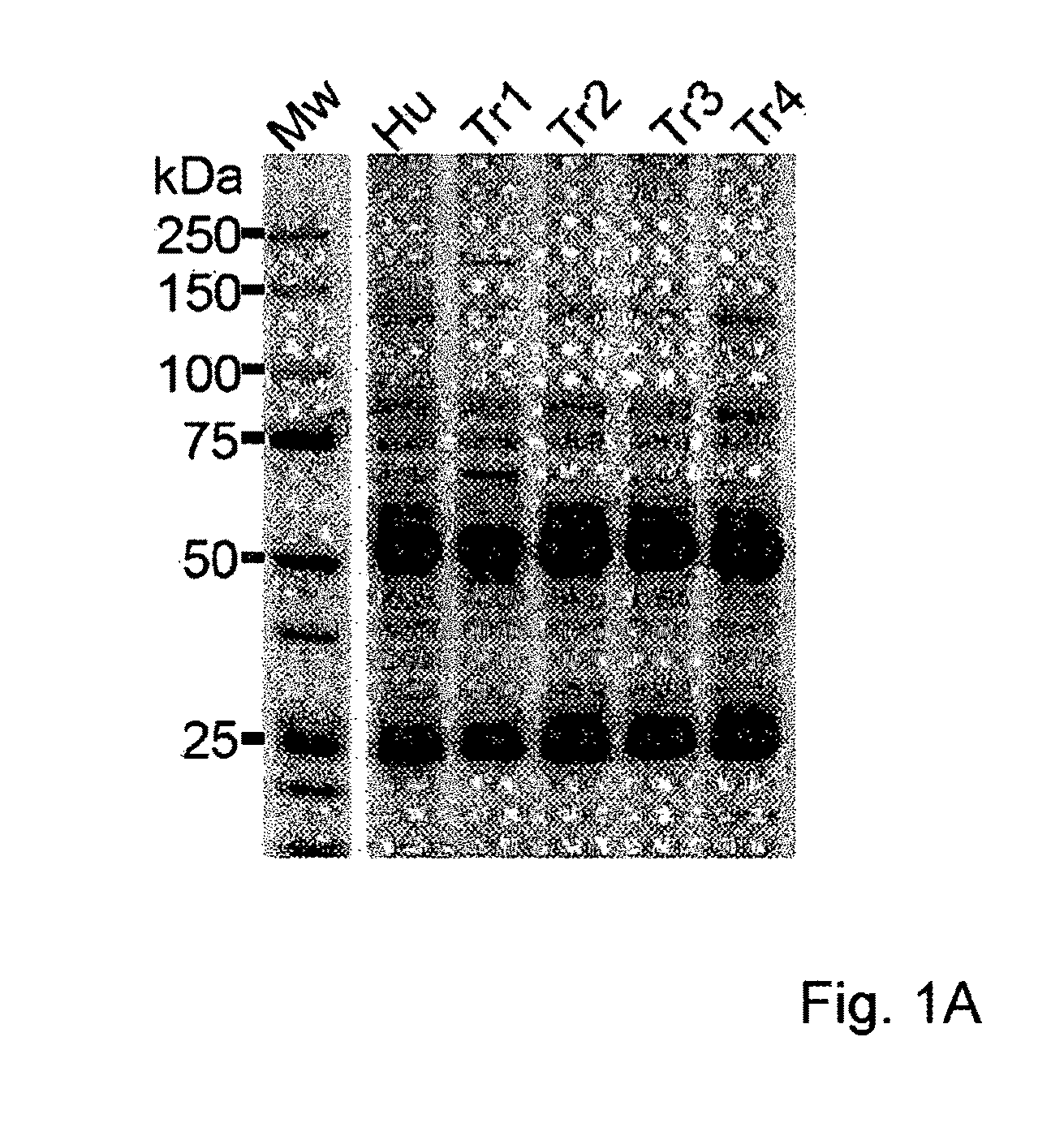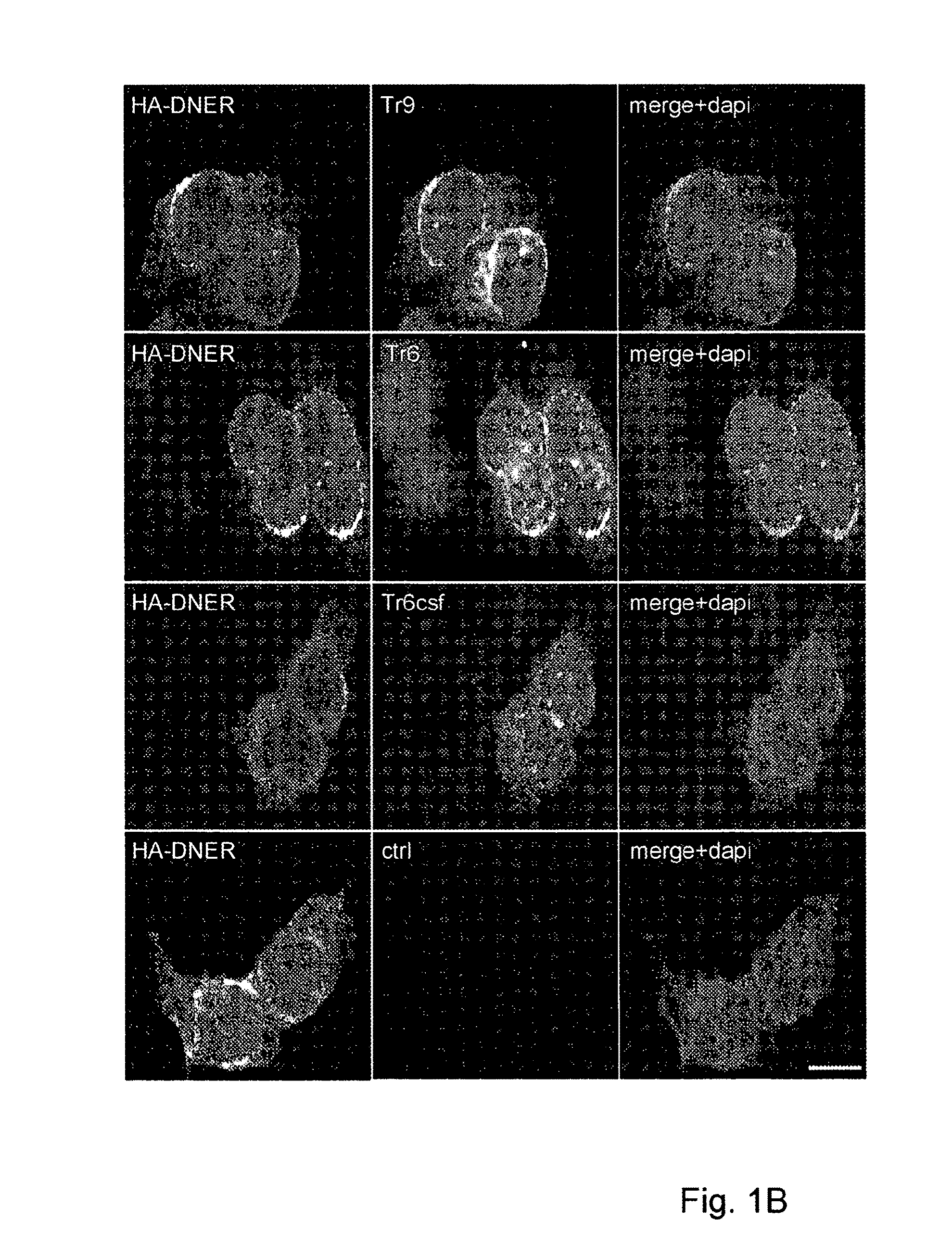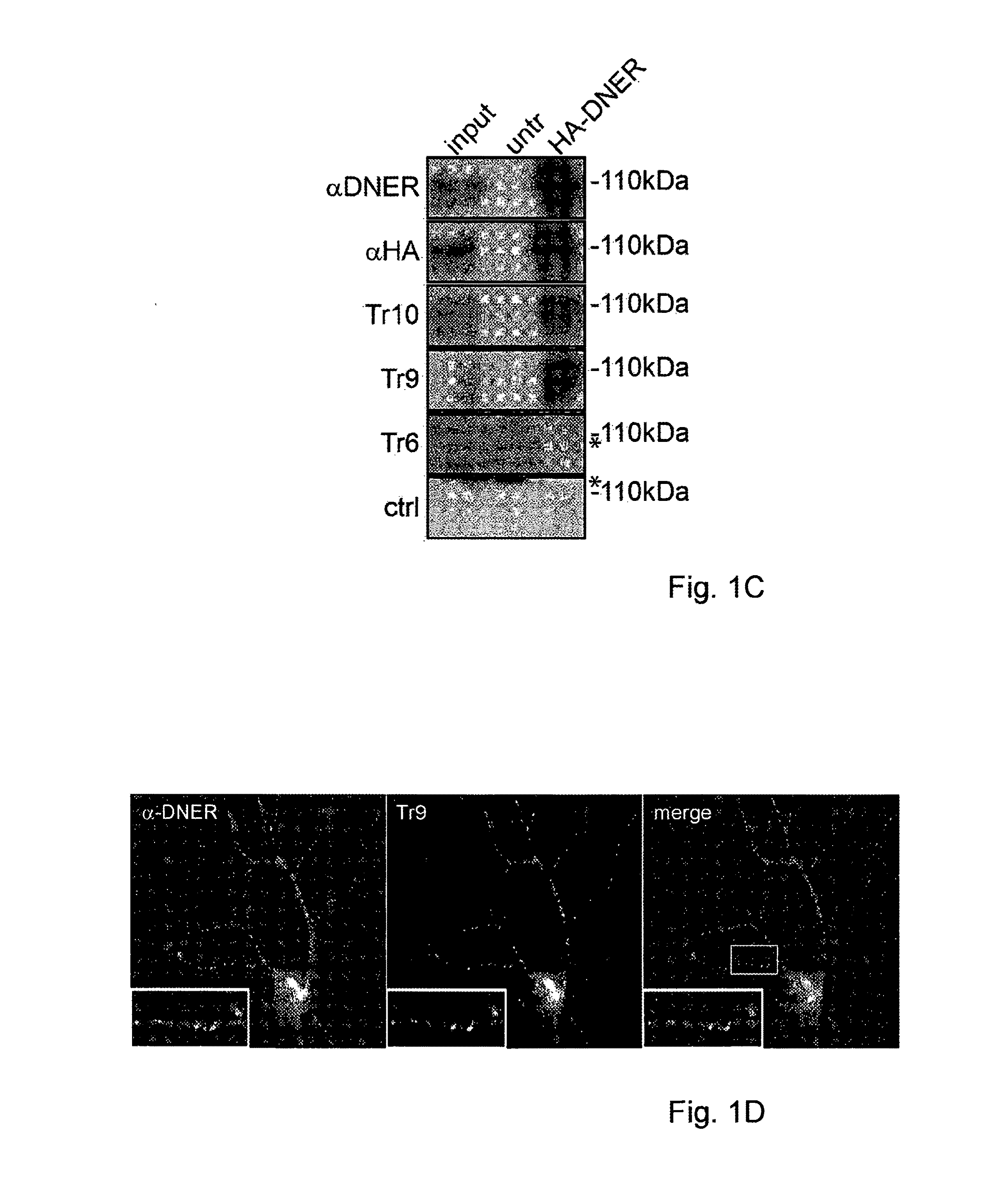Assay for Anti-tr antibodies
a technology of anti-tr antibodies and antibodies, which is applied in the field of immunoassays, can solve the problems of not being identified, affecting the detection accuracy of anti-tr antibodies, and affecting the detection achieving the effect of reducing the risk of infection, and improving the accuracy of anti-tr antibodies
- Summary
- Abstract
- Description
- Claims
- Application Information
AI Technical Summary
Benefits of technology
Problems solved by technology
Method used
Image
Examples
Embodiment Construction
[0050]In recent years, progress has been made in the identification of various antineuronal antibodies in different ways. Overlapping expression patterns led to the identification of antibodies against the metabotropic glutamate receptor 1 (mGluR1) in PCD associated with HL (Sillevis Smitt, P. et al., 2000, N. Engl. J. Med. 342:21-27) and anti-N-methyl-D-aspartate receptor (NMDAR) antibodies in limbic encephalitis (Dalmau J. et al., 2007, Ann. Neurol. 61:25-36) while association with a known complex identified Leucine-rich, glioma inactivated 1 (Lgi-1) as the antigen recognized by antibodies against voltage gated potassium channels (VGKC) (Irani, S. R. et al., 2010, Brain 133:2734-2748; Lai M., et al., 2010, Lancet Neurol. 9:776-785). Recently immunoprecipitation followed by mass spectrometry analysis (IP-MS) directed the identification of antibodies against the glutamate receptor subunits GluR1 and GluR2 (Lai M. et al., 2009, Ann. Neurol. 65:424-434), the Gamma Amino Butyric Acid B...
PUM
 Login to View More
Login to View More Abstract
Description
Claims
Application Information
 Login to View More
Login to View More - R&D
- Intellectual Property
- Life Sciences
- Materials
- Tech Scout
- Unparalleled Data Quality
- Higher Quality Content
- 60% Fewer Hallucinations
Browse by: Latest US Patents, China's latest patents, Technical Efficacy Thesaurus, Application Domain, Technology Topic, Popular Technical Reports.
© 2025 PatSnap. All rights reserved.Legal|Privacy policy|Modern Slavery Act Transparency Statement|Sitemap|About US| Contact US: help@patsnap.com



